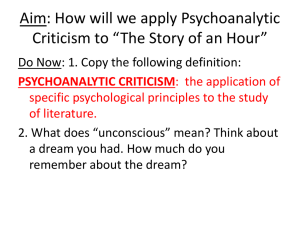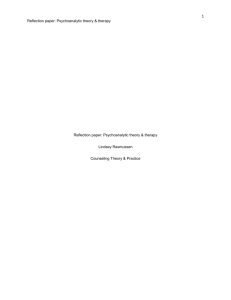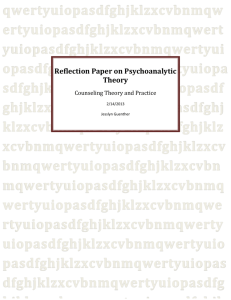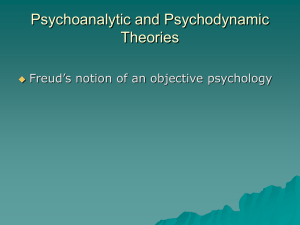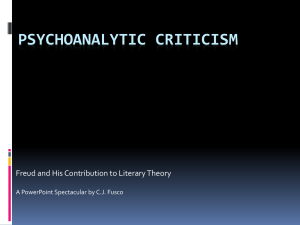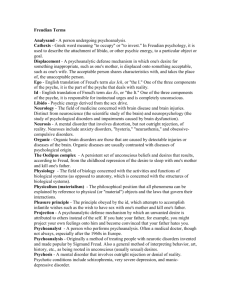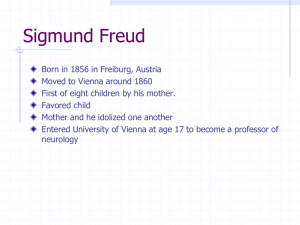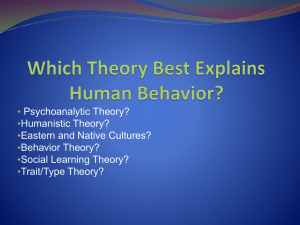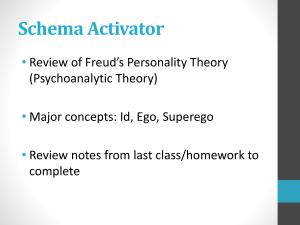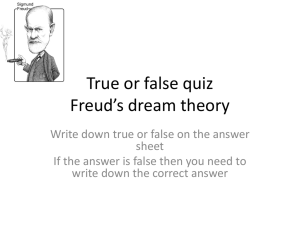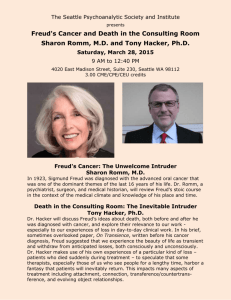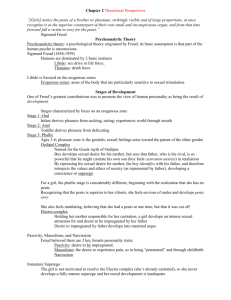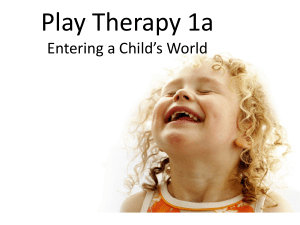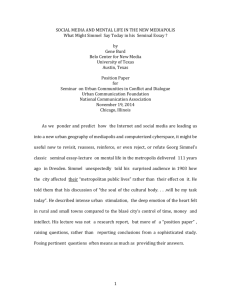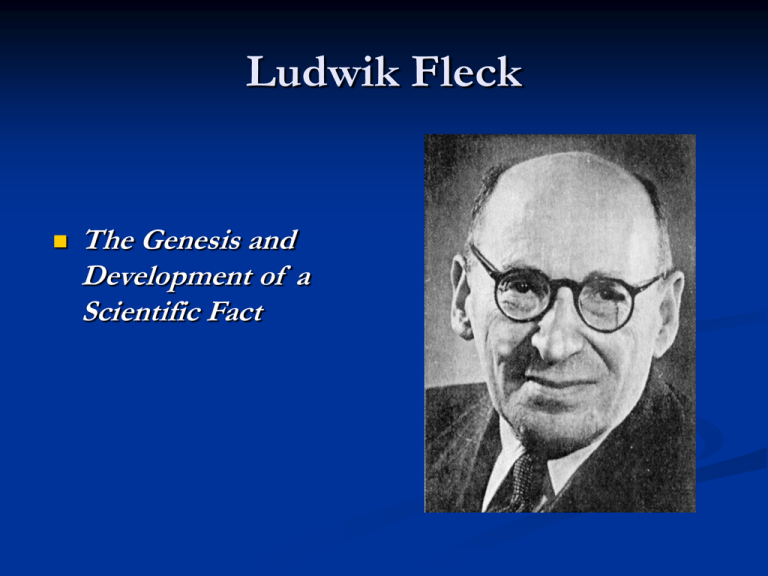
Ludwik Fleck
The Genesis and
Development of a
Scientific Fact
1896 Born in Lwow (now Lviv)
1914 Graduated from Polish Lyceum (equivalent to
Austrian Gymnasium) Fluent in German as well as
Polish
1914 Started Medical School
1920 Assistant in research laboratory for infectious
diseases in Przemysl
1923-1939 Worked as bacteriologist but unable to
have formal position at the University of Lwow even
though he was clearly qualified
1935-1939 Worked in bacteriological laboratory
which he founded
1927 First publication in the philosophy of science on the
analysis of the discipline of medicine Title: Some Specific
Features of the Medical Way of Thinking
1929 Essay “On the Crisis of ‘Reality’” generalizes his
statements on medicine to cover all of the Natural Sciences.
Fleck rejects the possibility of an absolute reality
independent of experience.
1935/36
Publication of his monograph “Genesis and
Development of a Scientific Fact.” His philosophical sources
include Simmel, LeBon, McDougal, Freud, Durkheim,
Bergson, and Levy-Bruhl and he questions the approaches of
the Vienna Circle including Carnap and
Mach. (town of Ratman manuevers).
The sociology of Scientific
Knowledge: SSK
Fleck’s seminal contribution was the idea that
scientific discovery is impacted by social,
cultural, historical, personal, and psychological
factors.
(Sociology of Psychoanalytic Knowledge SPK)
Denkkollektiv
“A community of persons mutually exchanging ideas for
maintaining intellectual interactions” provides the special carrier for
the historical development of any field of thought as well as for
the given stock of knowledge and level of culture”
Denkstil
“Shared attitudes or background assumptions that characterize a
thought collective.”
Sigmund Freud
A.A. Brill
Socialists: Erich Fromm, Otto Fenichel. Karl Landauer,
Barbara Lantos, George Gero Francis Deri, Kate Friedlander,
Steff Bornstein & Berta Bornstein.
Social Democrats: Annie Reich, Bruno Bettelheim, Grete
Bibring, Helene Deutsh, Ernst Simmel, Will Hoffer, Eduard
Kronengold, Siegfreid Bernfield, Heinrich Meng, Eduard
Hitscham, Paul Federn, Karen Horney, Joseph Friedjung, and
Anna and Sigmund Freud.
Communist: Annie Angel-Katan, Edith Jacobson, Edith
Gyömröi Ludowyk, Edith Buxbaum, Marie Langer, Ludwig
Jekels, and Wilhelm Reich.
“The poor man should have just as
much right to assistance for his
mind as he now has to life saving
help offered by surgery.”
Sigmund Freud
Cooperative Mental health clinics
offering free psychoanalysis:
Budapest, London, Paris, Vienna,
Berlin, Zagreb, Moscow,
Frankfort, Trieste.
"In your private opinions you might
be a Bolshevist but you would not
help the spread of psychoanalysis to
announce it"
Jones to Freud Letter #476
Correspondence
p. 592 February 25, 1926
“The communists believe that they have found the path to
deliverance from our evils. According to them, man is wholly good
and is well-disposed to his neighbor; but the institution of private
property has corrupted his nature. The ownership of private wealth
gives the individual power, and with it the temptation to ill-treat his
neighbor; while the man who is excluded from possession is bound
to rebel in hostility against his oppressor. If private property were
abolished, all wealth held in common, and everyone allowed to share
in the enjoyment of it, ill-will and hostility would disappear among
men. Since everyone's needs would be satisfied, no one would have
any reason to regard another as his enemy; all would willingly
undertake the work that was necessary. I have no concern with any
economic criticisms of the communist system; I cannot enquire into
whether the abolition of private property is expedient or
advantageous. But I am able to recognize that the psychological
premises on which the system is based are an untenable illusion. In
abolishing private property we deprive the human love of aggression
of one of its instruments....
Aggressiveness was not created by property. It reigned almost
without limit in primitive times, when property was still very
scanty, and it shows itself in the nursery almost before property
has given up its primal, anal form; it forms the basis of every
relation of affection and love among people.... If we do away
with personal rights over material wealth, there still remains
prerogative in the field of sexual relationships, which is bound
to become the source of the strongest dislike and the most
violent hostility among men who are in other respects on an
equal footing. If we were to remove this factor, too, by allowing
complete freedom of sexual life and thus abolishing the family,
the germ-cell of civilization, we cannot, it is true, easily foresee
what new paths the development of civilization could take; but
one thing we can expect, and that is that this indestructible
feature of human nature will follow it there.” Sigmund Freud
“In spite of all dissatisfaction with the present In spite of
all dissatisfaction with the present economic system, I have
no hope that the road economic system, I have no hope
that the road pursued by the Soviets will lead to pursued by
the Soviets will lead to I improvement. improvement.
Indeed any such hope that I Indeed any such hope that I
may have cherished has disappeared in this may have
cherished has disappeared in this decade of Soviet rule.
decade of Soviet rule. I remain a liberal of the I remain a
liberal of the old school old school” Civilization and its
Discontents, Sigmund Freud.
“In spite of all dissatisfaction with the present In spite of all
dissatisfaction with the present economic system, I have no
hope that the road economic system, I have no hope that the
road pursued by the Soviets will lead to pursued by the Soviets
will lead to improvement. improvement. Indeed any such
hope that I Indeed any such hope that I may have cherished
has disappeared in this may have cherished has disappeared
in this decade of Soviet rule. decade of Soviet rule. I remain a
liberal of the I remain a liberal of the old school old school”
Civilization and its Discontents, Civilization and its
Discontents,
Sigmund Freud.
Otto Fenichel
“We recognize in Freud’s
psychoanalytic germ the dialectical
materialist psychology of the future
and therefore we desperately need to
extend this knowledge.”
Otto Fenichel
Otto Fenichel
Closer to the Communist Party than most of the
socialists
Visited he Soviet Union several times
Toured Bolshevo, a prison for young offenders
Was impressed with Soviet experiment, like Gide, Sartre
and the Webbs
Felt both Marxism and psychoanalysis were scientific
disciplines because they were rigorous and produced
verification of principles and results
Ernst Simmel
Ernst Simmel
Like Bettleheim, Fenichel, and Bernfield grew up in
European left wing youth movement
Started a sanitorium for impatient treatment—Schloss
Tegel—outside of Berlin, model for Menninger Clinic
1828 Awarded chair of the Association for Socialist
Physicians and German Psychoanalytic Association.
Founded Los Angeles Psychoanalytic Association
Siegfried Bernfeld
Siegfried Bernfeld
Most Zionist of the Austro-Marxists
May have been Max Weinrich’s analyst
In a lecture to the Social Democrats made the case that Freud’s
emphasis on love and hunger and the influence of environment of
basic drives and the individual put him closer to Mark and Engles than
Alder or Jung
Strong advocate for lay analysis in the United States
Encouraged students to question their teachers and the ideas they were
taught, and stressed the limits of bourgeois educational and
institutional practices.
In Sisyphus, or the Limits of Education, published in 1925, Bernfeld
argued that humanistic educational reforms and critical pedagogy
depended on the success of socialist movements, without which
progressive education could not secure lasting gains.
Wilhelm Reich
Wilhelm Reich
Founded Sexpol clinics in Vienna
Joined Communist part in 1908. He was in the
same cell as Arthur Koestler
Expelled from IPA in 1933 and from Comunist
Party in 1931
Maintained Freud wrote Civilization and its
Discontents because of him
Hounded by FBI in the United States
The Emergency Committee on Relief and Immigration of the American
Psychoanalytic Association
Bertram Lewin
Lawrence Kubie
Political Involvement of the US Psychoanalytic
Cohort
1) Spanish Civil War
Aaron Hilkovich
William Pike
2) Physician’s Forum and Medical Committee on
Human Rights
3) Civil Rights Movement
4) Anti Vietnam War Movement (Full page ad in the
New York Times against the Gulf of Tonkin
Resolution
Impact of far left American psyshoanalysts
I Organizational Politics
New York Psychoanalytic Institute
American Psychoanalytic Association
2 Clinical Practice
3 Psychoanalytic Theory
“Men are strong, so long as they
represent a powerful idea”
Richard Sterba
Reminiscences of a Viennese
Psychoanalyst 1982
"For many left psychoanalysts, the recovery of a critical
psychoanalytic tradition, that is, the “good objects” in our
collective past, represents the recovery of hope and of the
human potential for modifying the destructive currents of
history. Identification with subversive traditions is a necessary
bridge in assimilating the destructive truths of the past. This
capacity for idealized identifications with the past underlies the
capacity for hope and movement toward a better world. The
capacity to critically assimilate the destructive truths of the
past is also essential if hope for the future is to be more than
just an illusion."
Janice Haaken Ph D. Sigfried Bernfeld Conference:
Uncovering the Psychoanalytic Political Unconscious
"There is a history that
remembers and a history that
originates in a need to forget"
Christopher Lasch

